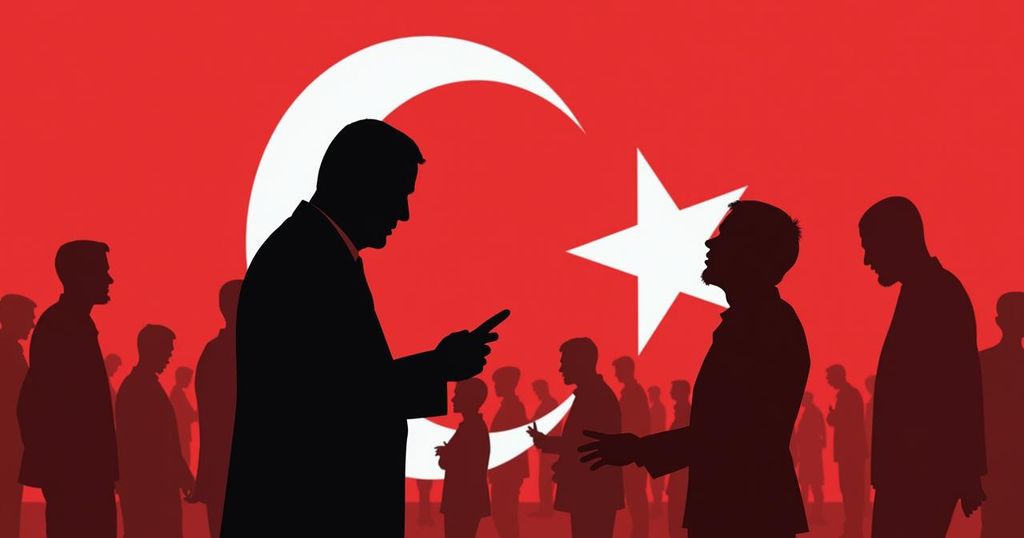Tunisia’s Presidential Election: A Path to Continued Autocracy amid Voter Apathy

In the recent Tunisian presidential election, President Kais Saied is projected to win decisively with 89.2% of the vote amid an alarming low turnout of less than 30%. The electoral landscape is heavily skewed in Saied’s favor due to the marginalization of his opponents, particularly with his first term marked by a crackdown on political dissent and economic challenges. The opposition labeled the elections a sham.
In Tunisia’s recent presidential election, President Kais Saied is projected to secure a decisive victory with 89.2 percent of the votes as per an exit poll reported on state television on Sunday. This anticipated win is set to reinforce Saied’s authority following his consolidation of power in 2021. However, the election was overshadowed by a significant lack of voter engagement, with turnout reported at less than 30 percent, marking a stark decrease compared to the 49 percent turnout in the 2019 election’s first round. President Saied faced two challengers: imprisoned businessman Ayachi Zammel and Zouhair Maghzaoui, a leftist candidate who previously supported Saied. The election landscape notably favored Saied, given that his opponents faced considerable limitations, including imprisonment and marginalization. Saied, who heeft capitalized on public disillusionment with the political status quo following the Arab Spring, has been governing amidst economic challenges since he suspended parliament and rewrote the constitution in a series of contentious moves that the opposition has described as a coup. The opposition groups had urged for a boycott of the election, labelling it a farce. Official results are expected to be announced on Monday evening. Prior to the election, Saied asserted that there were no restrictions on prospective candidates, dismissing claims to the contrary as misguided. As reported, Tunisia’s economy is grappling with significant issues, including a public debt that has surged to over 80 percent of the national income and a current account deficit reaching 15 percent of GDP, exacerbated by global inflation and the impacts of the ongoing Russia-Ukraine war.
Tunisia’s political climate has been fraught with tension since the Arab Spring, which sought to bring about democratic reforms but has since transformed into a struggle over power dynamics. President Kais Saied has faced allegations of undermining democracy after his decision to dissolve parliament in 2021 and rule by decree. Amidst rampant economic challenges, including soaring public debt and diminishing public trust in the political process, the recent presidential election reflects the ongoing tensions between autocratic governance and the aspirations for democratic representation. The opposition, fragmented and under duress, has not been able to mount a robust challenge to Saied, resulting in low voter turnout and allegations of electoral manipulation.
In summary, Tunisia’s latest presidential election appears to reinforce President Kais Saied’s dominance amid widespread voter apathy and serious governance concerns. His projected landslide victory underscores the political challenges facing Tunisia, especially in light of economic turmoil and allegations of autocratic rule. The opposition’s calls for a boycott and the low voter turnout indicate a significant disillusionment with the electoral process, signaling potential long-term implications for Tunisia’s democratic aspirations.
Original Source: www.middleeasteye.net







